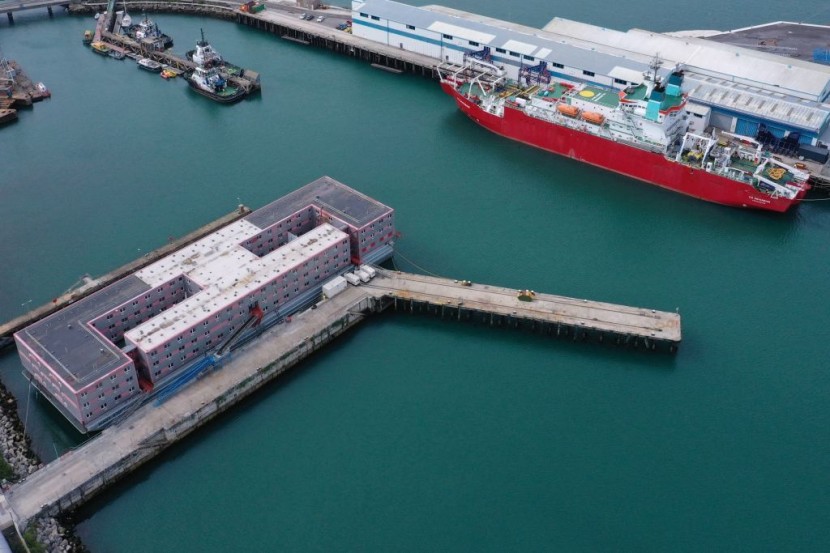
Britain's government is facing criticism over its response to an outbreak of Legionnaire's disease among asylum-seekers residing on a barge moored off the south coast of England.
The government's efforts to control migration and reduce the cost of housing asylum-seekers have come under scrutiny once again as questions arise about the timeliness of evacuating individuals once traces of the Legionella bacteria were discovered in the ship's water system, as per VOA.
Criticism Over Government's Handling of Asylum-Seeker
Local health officials revealed that the barge operator was informed about the presence of the bacteria on a Monday, a day before asylum-seekers were moved onto the vessel.
However, Health Secretary Steve Barclay asserted that government ministers were not made aware of the situation until Thursday, after which they took swift action. The Home Office, responsible for migration oversight, relocated all 39 men living on the ship to alternative accommodations on Friday.
This incident comes amidst an intensified focus on immigration after a surge of migrants crossed the English Channel in small boats, with at least six people losing their lives in a boat sinking off the coast of France.
Over the span of August 10-12, more than 1,600 individuals arrived in England on 30 boats, prompting concerns about the government's ability to manage migration.
Prime Minister Rishi Sunak, aiming to bolster voter support for his Conservative Party, has made stopping the influx of migrants a key priority. His strategy includes relocating asylum-seekers from hotels to barges and disused military bases in an attempt to reduce the appeal of seeking shelter in the UK.
Additionally, he has proposed deporting those who enter the country illegally to Rwanda, although this plan has encountered legal challenges. The issue of the Legionnaire's disease outbreak raises broader questions about the government's accountability and responsiveness.
Dorset council's environmental health officers conducted tests for the bacteria in late July, and on August 7, as the first asylum-seekers were brought aboard the barge, contractors of the Home Office were informed about the significant presence of Legionella.
The council maintains that a Home Office official was informed of the outbreak on August 8, while the government denies confirmation or denial of this claim, according to The Guardian.
Legionella Outbreak in UK
Critics argue that the government should have adhered to established safety practices, citing the Health and Safety Executive code of practice for buildings from 2013, which mandates checking for Legionella in facilities.
It is considered a basic precaution for building controllers and employers to conduct regular checks on showers and air conditioning systems, especially if they have been unused for a period. Failure to comply with this code of practice can lead to legal consequences.
As public health concerns mount, the government is under pressure to address these issues transparently and take appropriate actions to prevent similar occurrences in the future. The leaked document suggesting plans to house up to 1,000 people on the barge raises questions about the adequacy of risk assessments and planning.
Amidst the uncertainty of when asylum-seekers will return to the barge and the government's refusal to provide a timeline, there is a growing demand for accountability and clarity. It remains to be seen how this incident will impact the ongoing discourse on immigration, migrant welfare, and the government's overall handling of these matters.
The government's handling of the Legionnaire's disease outbreak among asylum-seekers has ignited criticism and renewed discussions about its migration policies and overall responsibility.
As investigations continue and the public demands transparency, it is crucial for the government to address these concerns to ensure the safety and well-being of vulnerable individuals seeking refuge in the UK, INews reported.








